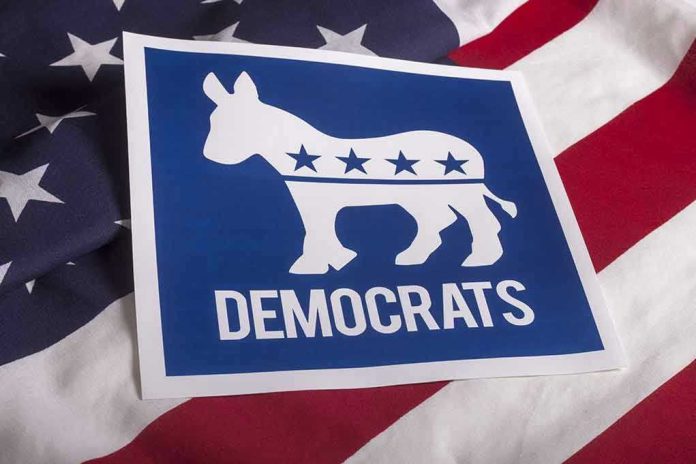
Jay Jones’s $500,000 fundraising windfall for Virginia Attorney General—touted as grassroots fire—was actually a single PAC’s match, exposing the campaign’s narrative to piercing scrutiny and leaving voters wondering who really holds the reins of political enthusiasm in Virginia.
Story Snapshot
- Jones’s campaign claimed a $500,000 fundraising haul as grassroots momentum.
- Investigations revealed the sum came from one Democratic PAC, not small donors.
- The discrepancy sparked debate about transparency and authenticity in campaign narratives.
- Media and watchdogs intensified scrutiny on Jones’s fundraising methods.
Dissecting the Grassroots Illusion in Virginia’s Attorney General Race
Jay Jones’s campaign announcement in early June 2025 quickly reverberated through Virginia’s political circles. The claim: $500,000 raised, proof of “grassroots momentum and enthusiasm.” To many, this signaled a groundswell of small-dollar support—a candidate propelled by everyday Virginians. Days later, the true source unraveled. Media and watchdog groups traced the entire sum back to a single Democratic PAC, not a mosaic of individual donors. The core of the campaign’s narrative, rooted in grassroots energy, was suddenly upended by the cold reality of big-dollar backing.
Jay Jones Claimed $500,000 Fundraising Haul Showed Grassroots ‘Momentum and Enthusiasm.’ It Actually Came From a Single Dem PAC. https://t.co/9VW9AMAHiO
— Rick O (@pghrick52) October 31, 2025
The timing could not have been more critical. By June 18, Jones clinched the Democratic nomination for Attorney General, defeating Shannon Taylor in a closely watched contest. Amid this victory, the fundraising controversy surged to the forefront, with opponents and skeptical voters questioning not just the size of the haul, but its provenance. Grassroots support, a prized commodity in American politics, appeared to be more mirage than movement as Jones’s campaign was forced to recalibrate its message.
Campaign Finance Transparency Under the Microscope
The Jones fundraising episode thrust the issue of campaign finance transparency into the spotlight. Virginia’s statewide races are notorious for their competitive edge, where fundraising prowess often serves as a proxy for political strength. Historically, candidates have paraded their fundraising figures as evidence of broad-based support, but the Jones case revealed just how easily narratives can be constructed—and deconstructed—when the actual sources come to light. The revelation of PAC involvement did not merely embarrass the campaign; it challenged the integrity of the process by which candidates claim legitimacy.
Grassroots enthusiasm, when manufactured through large PAC donations, undermines the very democratic ethos that such campaigns claim to uphold. As watchdogs and media outlets continued to probe, Democratic voters and activists became increasingly vocal. Many demanded more rigorous disclosure practices, worried that similar misrepresentations could erode public trust in future elections. The controversy rippled outward, affecting the dynamics of the general election, where Jones now faces incumbent Republican Jason Miyares.
Stakeholders, Power, and the Reputational Stakes
Jay Jones stood at the center of this tempest, his campaign simultaneously buoyed by party infrastructure and PAC generosity, yet battered by doubts about authenticity. The Democratic PAC’s motives—likely strategic, aiming to shape the outcome of a high-stakes race—highlighted the outsized influence wielded by such organizations. Shannon Taylor, Jones’s primary opponent, found herself a peripheral beneficiary of the controversy, as questions about fundraising fairness and transparency shifted the race’s narrative.
Media organizations and watchdog groups played a decisive role, leveraging their investigative power to peel back the campaign’s messaging. In an era where public perception can pivot on a single revelation, their impact cannot be overstated. The Virginia Democratic Party, tasked with maintaining unity and voter enthusiasm, grappled with the fallout, balancing the need to support their nominee against the imperative for honest communication.
Implications for Virginia Politics and Beyond
The short-term effects of the PAC revelation were swift: erosion of trust among grassroots supporters, heightened scrutiny of Jones’s campaign finances, and an urgent need for message recalibration. Long-term, the incident could set new standards for campaign finance disclosure, influence Jones’s reputation, and even affect his viability in November’s general election. For other candidates, the episode serves as a cautionary tale. The boundaries between grassroots support and big-money influence have never been more porous—or more contested.
Political analysts argue that while PAC support is essential for competitiveness in modern campaigns, conflating it with grassroots energy is risky. Such misalignment between financial reality and campaign narrative can alienate base voters and prompt calls for reform. Academic commentary reinforces this view, emphasizing that transparency is not merely a procedural concern, but a cornerstone of democratic legitimacy. The Jones controversy, grounded in recent reporting and official election data, stands as a defining moment in the ongoing battle over how political enthusiasm is measured—and who gets to claim it.
Sources:
VPM News: Election Results and Candidate Profiles
Fox News: Can Jay Jones Replace Democrats’ Defense?
Wikipedia: Jay Jones (politician)
Center for Politics: Races to Watch in the Virginia House of Delegates









